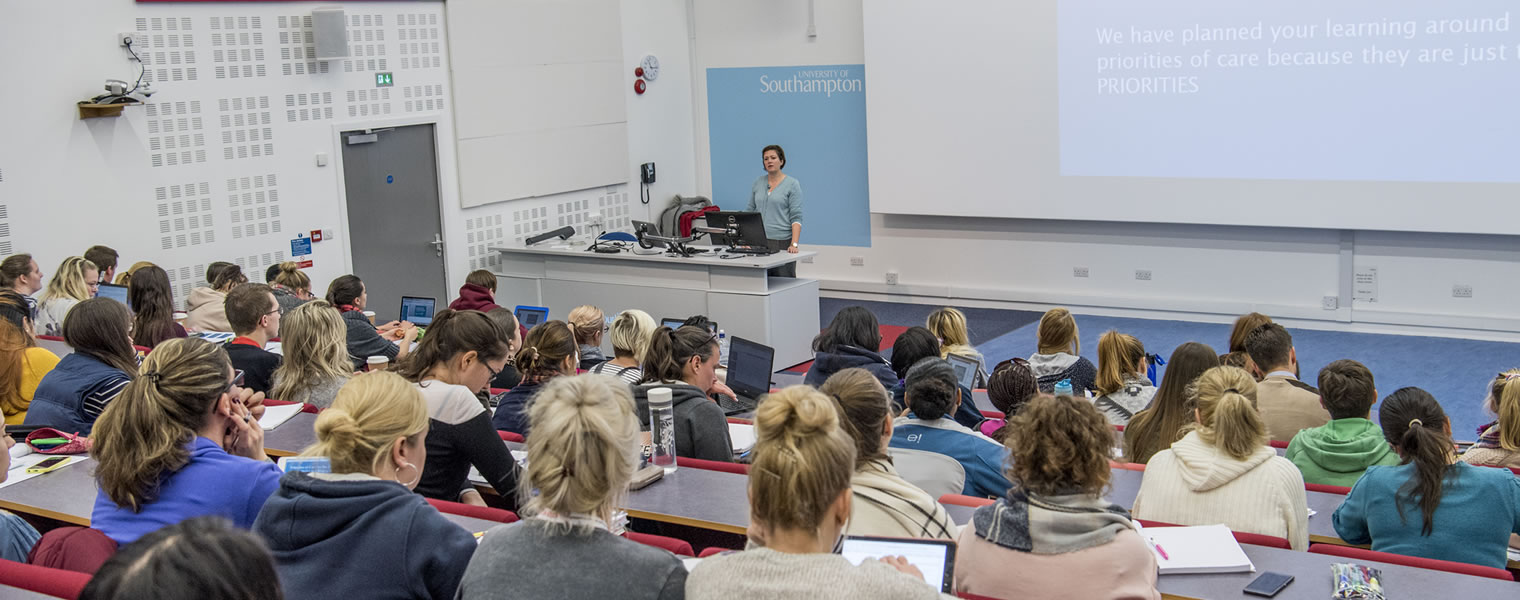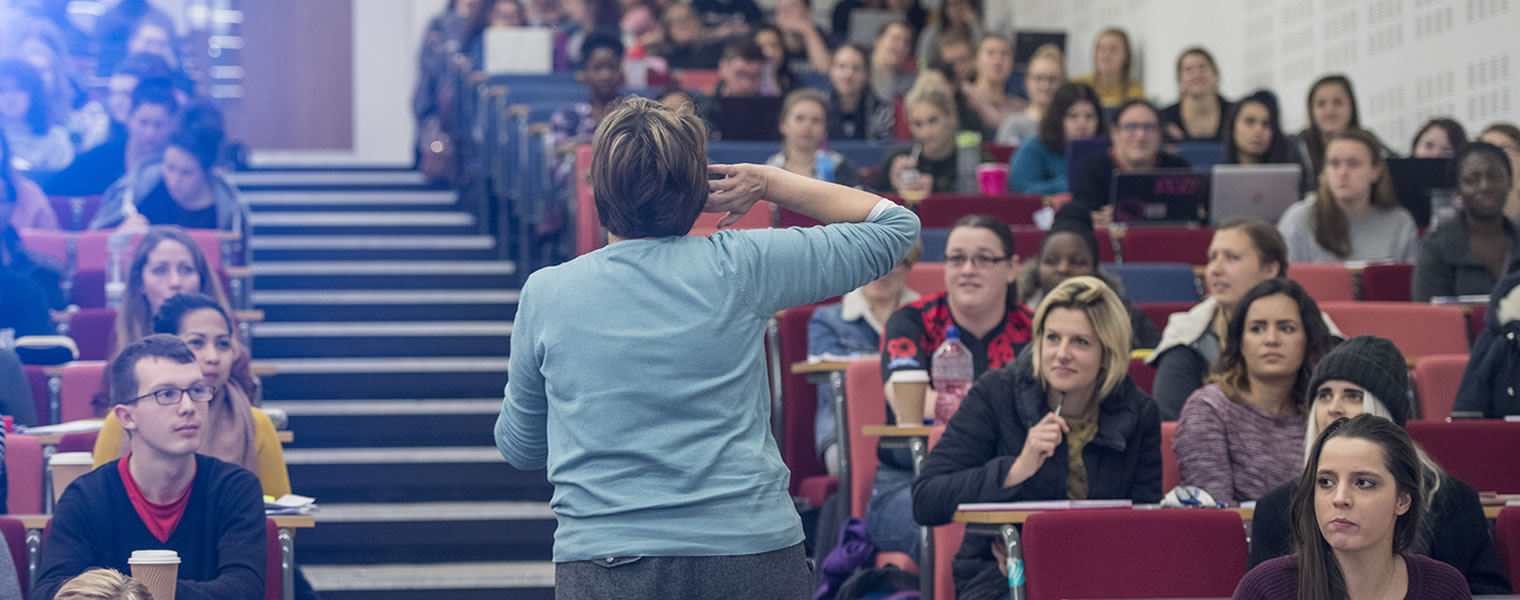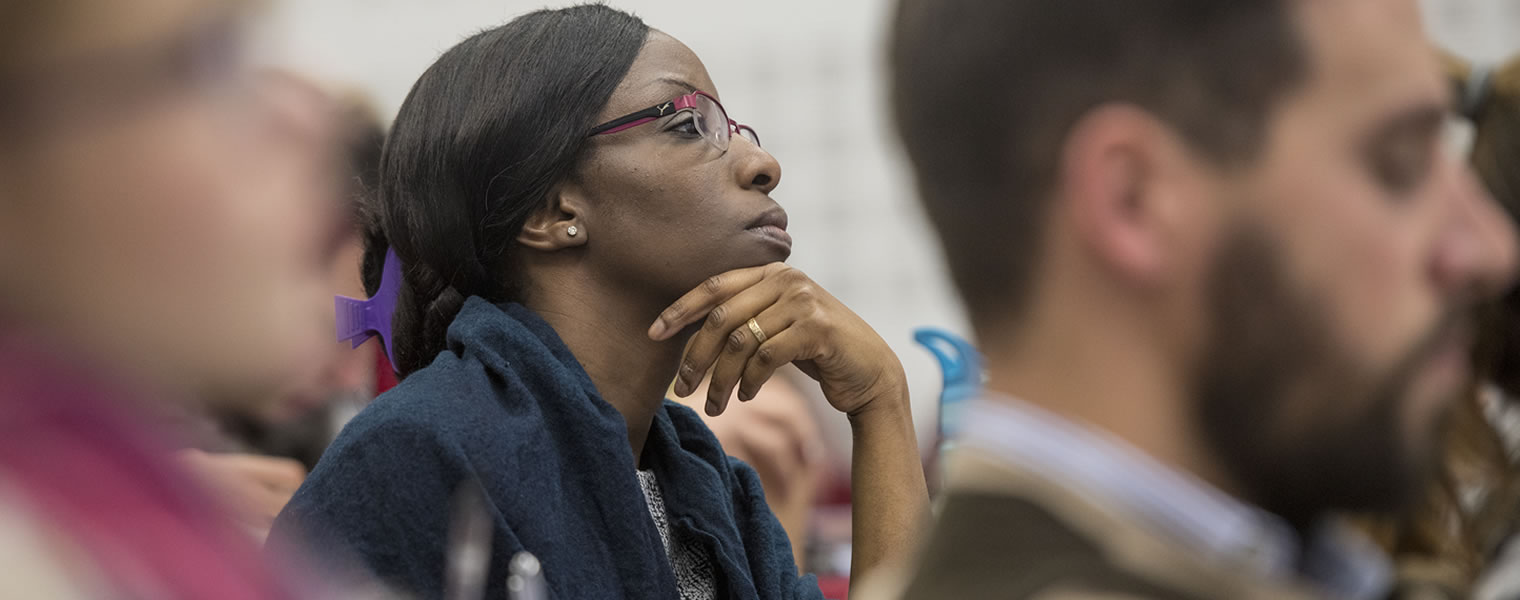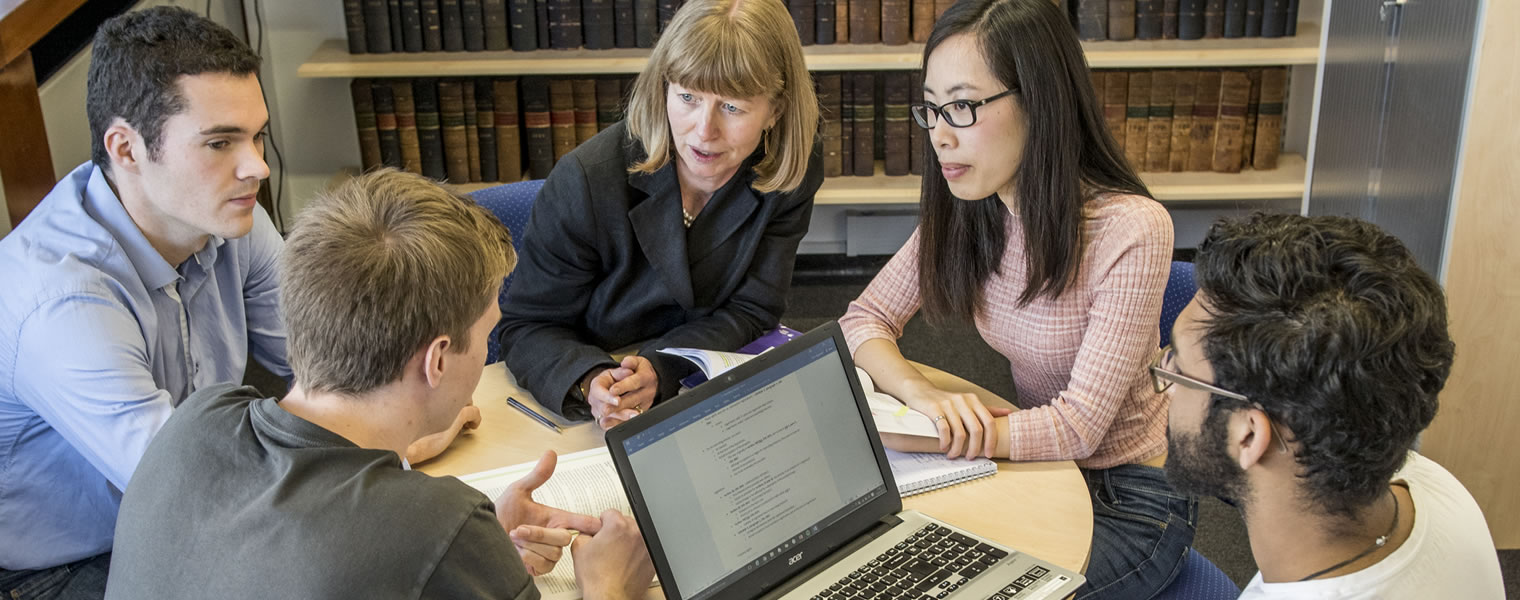Hartley News Online Your alumni and supporter magazine
The National Student Survey (NSS) launches here at Southampton on Thursday 8 February 2018. Although the survey is focused towards students, staff at the University have an important role to play.
The NSS states that approximately 40 per cent of students who completed the Survey online were told about it by a staff member, indicating the importance of your involvement in the campaign.
What is the NSS?
Final-year undergraduate students are invited to complete the NSS, an annual survey run by Ipsos MORI on behalf of the Higher Education Funding Council for England (HEFCE). The NSS is a nationwide census that enables students to provide feedback about their university experience with areas including teaching, learning opportunities, assessment and feedback, and learning resources. This year students will be able to complete the survey until it closes on Monday.
Why is it important for us? Why should we care?
The NSS results are significant for the University. The Survey demonstrates the importance we place on listening to our students. It also provides feedback from our student community, so that we can understand more about what our students are thinking and the areas that need improving.
By helping with the promotion of the NSS, you can help to ensure that we get maximum participation from our final-year students, thus getting the most out of this opportunity as possible.
We also need to ensure we have good response rates across the University. All of our subjects must have both a 50 per cent response rate as well as a minimum of 10 student responses in order for our results to be published. The more data we have, the more accurate the information, and the more valuable it is for us.
How can I help?
All staff can do their bit to ensure that final-year students take the survey this spring, even if your role is not directly student-facing. Here are five ways for you to get involved.
1. Share promotional material
Printed promotional material is a vital part of getting the NSS information seen by students on campus, and it performed well in last year’s campaign. Banners, posters and postcards will be distributed across all campuses, as well as on unilink buses. Ensuring that these remain on display throughout the campaign will be an important part of the process, and you can help with this.
It’s not just printed posters that will be seen widely; social media posts, digital displays and emails are significant channels for communicating with finalists. By sharing social media posts with student followers, you can help to reach a wider audience.
If you are delivering talks or lectures over the Survey period, you can also include ‘shout-outs’ to your final-year students to remind them to complete the Survey. PowerPoint presentation materials are available to help with NSS promotions in lectures, and can be found with other promotional material on the NSS Intranet Site. A personal approach to sharing encouraging participation is also very popular; dissertation supervisors and Personal Academic Tutors may wish to ask students if they have taken the Survey yet, and getting student representatives to spread the word can be successful too.
These promotional posts and displays are not only vital visual reminders; by promoting this content, we are showing our students how important the Survey, and subsequently their opinion, is for us all as a University community. These materials speak volumes to students who care about giving feedback about their education; they are emotive, attract an already captive audience, and will help the message to stick in their minds with a clear call to action.
2. Get creative
Your teams could think creatively about getting students involved. For example, offering small incentives to students upon completion, like free coffee, food or print credit, has worked well in the past. Arranging course-specific, dedicated sessions for completion of the NSS could also help to remind students to have their say. Last year, short videos from staff members encouraging students to respond proved to be very effective. Videos produced by Ipsos MORI can be found on the NSS Intranet site.
Finding creative ways to encourage participation makes the campaign memorable and helps it to stand out.
3. Keep things running smoothly
Even if your role is not directly student-facing, your work will still help the campaign to run smoothly. By maintaining systems that control emails, website content, intranet pages and displays, you’ll be ensuring that content is visible, accessible and prompt.
Maintaining ‘business as usual’ to our high standards will also mean that students may feel inclined to give feedback after interacting with our services.
NSS promotion is not just for our academic staff; we all have an important part to play.
4. Know your facts
Understanding the facts and background information about the Survey is vital. You could use fact sheets to brief fellow members of staff, or circulate them within your team, to make sure that all messaging is accurate and helpful.
It’s also important to be ready to answer questions about the NSS from students, whether you are a member of academic staff or within professional services. Being readily able to give information to students can ensure they know all of the important information and can highlight the importance of the Survey once more.
Facts and good practice guides can all be found on the NSS Intranet site.
5. Avoid inappropriate influence
There are rules surrounding the NSS which dictate what can and cannot be said or done during the campaign period. HEFCE states that “any activity which may encourage students to reflect anything other than their true opinion of their experiences during their course in their NSS responses” is known as ‘inappropriate influence’.
These rules are incredibly important and breaching them could result in disqualification. Inappropriate influence is taken very seriously. Survey promotion must remain neutral; we are responsible for ensuring that our students are encouraged to engage with the Survey in an honest way. Read more about what is an inappropriate influence on the NSS website and on the University’s NSS Intranet pages.
We must promote the campaign, and not the University, and focus on response rates rather than results.
Where can I find more information?
Everything you need to know about the NSS, including timelines, contact details and good practice guides can be found on the NSS Intranet site.
Response rates are updated weekly on the SharePoint site throughout the campaign, so you can stay updated on how your area is performing. Print and display screen updates will also be provided for faculties.
A year-round communication plan
Communicating with students is, of course, a year-round focus, not just for the NSS campaign. The Internal Communications Team have been working to increase and improve student communication and empower staff across professional services and faculties.
A Staff Toolkit has been created to support staff who communicate with students, and to relay information about key campaigns and channels run by the Student Communications Team. The Toolkit includes guidelines, templates, videos and more, to make it as easy as possible for all staff to contribute to campaigns throughout the year.
Find out more and view the Toolkit on the Student Communications Intranet pages
Visit the National Student Survey Intranet pages
Have your say
The poll in this article is optional and anonymous. The polls are covered by Ethics 17326.



